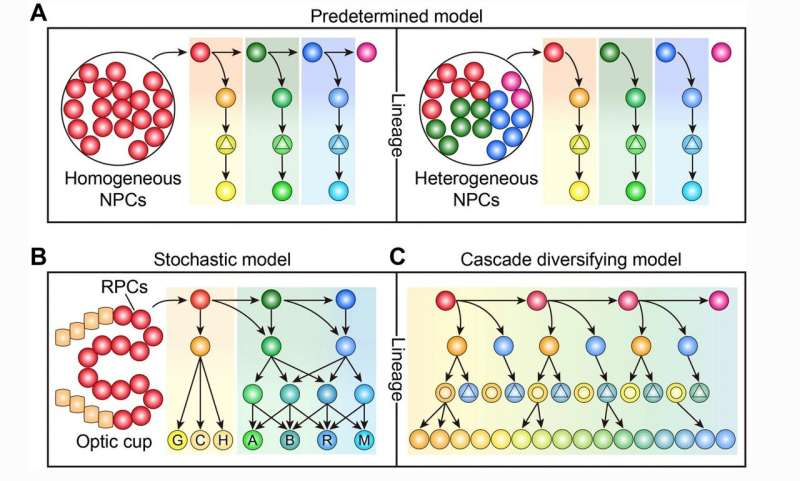
The complexity and function of the nervous system relies on the generation of unparalleled neuronal diversity across molecular, morphological, functional and connectional features throughout developmental continuum. However, the strategies to generate neuronal diversity across different brain regions during development remain enigmatic.
In a review published in the Neuroscience Bulletin, researchers led by Dr. Wu Qingfeng from Institute of Genetics and Developmental Biology of the Chinese Academy of Sciences have illustrated three distinct strategies deployed by neural progenitors to produce diverse neuronal subtypes:
In combination with the spatiotemporal developmental patterns of nervous system, the researchers summarized the developmental process of neural progenitor cells within cerebral cortex, spinal cord, retina and hypothalamus.
It is also notable that microenvironmental cues, spontaneous activity and connectional pattern further reshape and diversify the fate of unspecialized neurons in particular regions. The illumination of how neuronal diversity is generated will pave the way for producing specific brain organoids to model human disease and desired neuronal subtypes for cell therapy, as well as understanding the organization of functional neural circuits and evolution of nervous system.
Source: Read Full Article
